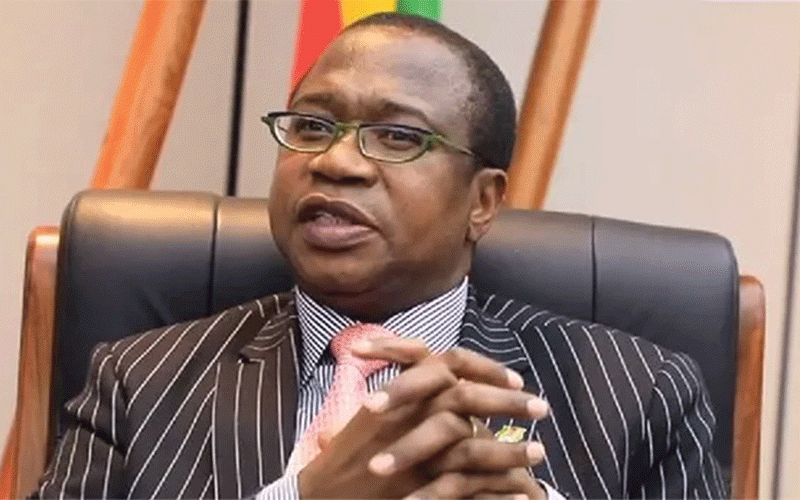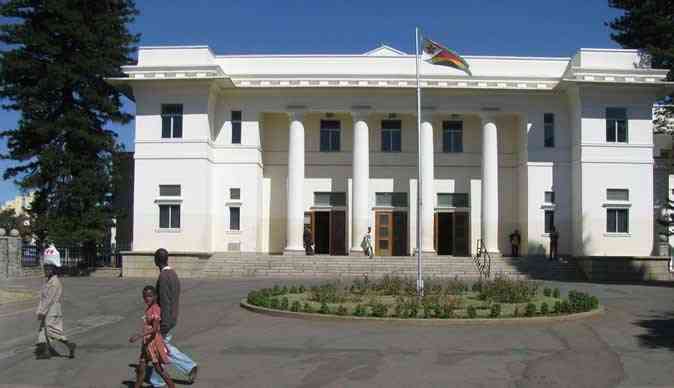
WITH 2024 now in full swing, Zimbabwe’s economic and political landscape casts a gloomy outlook due to last year’s disputed election that was discredited by the Southern African Development Community (Sadc), a looming El Nino induced drought, tumbling commodity prices and the country’s fragile industrial base, which has been buffeted by severe headwinds.
A raft of unpopular taxes introduced by Finance minister Mthuli Ncube in the 2024 national budget that includes steep increases in the price of passports, fizzy drinks and toll gates will undoubtedly take a toll on the hard suffering citizens. Without the privilege of gazing into the crystal ball, here is the Zimbabwe Independent’s not so optimistic guide to 2024.
House of Hunger
In the absence of a positive shift in weather patterns already predicted by experts, Zimbabwe is projected to plunge into extreme hunger owing to the impending El Nino induced drought, with rural communities expected to be on the receiving end of the looming crisis.
According to the 2023 Zimbabwe Vulnerability Assessment Committee’s Urban and Rural Livelihood Assessments, was is estimated that 29% of the urban population in 2023 (1,5 million people) were food insecure, with a further 19% of people in rural areas (estimated at 1,9 million) projected to be food insecure from October to December 2023, before peaking at 26% (2,7 million people) in the first quarter of 2024. The unfolding El Niño phenomenon for the 2023-24 summer cropping season, which is associated with drier-than-average conditions, is poised to exacerbate this predicament.
It is expected to intensify aridity, significantly impacting food and animal production across many areas, including those typically classified as “dry regions”.
CCC on the brink
In the wake of last year’s disputed elections which were won by President Emmerson Mnangagwa, the party of his closest rival Nelson Chamisa has suffered crippling setbacks after self-imposed interim secretary general Sebenzo Tshabangu recalled scores of the outfit’s elected officials, including parliamentarians and force by-elections that could give Zanu PF its desired two thirds majority.
- Mbavara eyes to resurrect Matavire’s music legacy
- Health talk: Covid-19 is still around
- Health talk: Covid-19 is still around
- Zim exiles panic over SA permits
Keep Reading
Tshabangu has so far recalled the party’s 15 legislators and 17 councillors, triggering a wave of by elections across the country.
The first round of by - elections were held in December with another set of polls scheduled in February.
The Tshabangu initiated recalls have left CCC in a disarray, amid swirling speculation that the party may split right in the middle as its leadership continue to squabble. In 2024, there is high likelihood that the political party will remain in turmoil if comments by Mnangagwa’s spokesperson George Charamba on microblogging site X is anything to go by.
Charamba, who is widely believed to be the face behind @dhonzamusoro007 handle on microblogging site X issued an ominous warning against the CCC last week.
He wrote: We are ready to push the final nail in the CCC coffin when foolhardiness gets in to try it(s) luck on the street action in early January. We must aim to make Zimbabwe political soil inhospitable.”
Zimbabwe’s increased isolation
Mnangagwa’s foreign policy agenda to mend frosty relations with the West, including pleas for Zimbabwe to be readmitted into the Commonwealth, suffered a major blow following the discredited 2023 general elections. The Commonwealth, alongside the European Union (EU) and Sadc underscored that last year’s elections organised by the Zimbabwe Electoral Commission (Zec) failed to satisfy international standards.
Subsequently, the EU suspended funding to Zec while the US issued a fresh set of sanctions targeting individuals perceived to be undermining democracy in Zimbabwe.
In that context, relations between Harare and Western capitals are expected to remain frayed considering that Mnangagwa’s administration has not demonstrated any political will to roll out key political and economic reforms demanded by the West.
Broadly, Zimbabwe’s efforts to extinguish its odious US$17,7 billion debt appear dead in the water as the southern African country struggles to satisfy conditions set by various multilateral creditors including the World Bank (WB) and the International Monetary Fund (IMF).
The Bretton Woods institutions, as a prerequisite to resume extending credit to Zimbabwe, called on Mnangagwa’s administration to contain public expenditure and curtail corruption, among other conditions.
Zimbabwe is currently engaging the IMF for another Staff Monitored Program (SMP) which will be key towards unlocking fresh lines of credit from the Bretton woods institutions.
Sikhala’s prolonged incarceration?
Barring any unexpected turn of political events, there is a very high likelihood that CCC firebrand official Job Sikhala will continue to languish in jail after he was incarcerated for inciting public violence in 2022.
Sikhala, who has written numerous impassioned pleas from his jail cell at Chikurubi maximum prison demanding his freedom was condemned to gaol two (2) years ago following the murder of CCC’s activist Moreblessing Ali.
Sikhala, a lawyer by profession and former Zengeza legislator is representing Ali’s family in its quest to bring the murderers of their family member to justice.
Human rights organisations have criticised Mnangagwa’s administration for weaponising the judiciary to clamp down on political opponents. Notably, the civic society cites Sikhala’s continued incarceration as an example of how Mnangagwa is manipulating the judiciary to thwart dissent.
Price hikes
Zimbabweans should brace for a new wave of price hikes this year following the introduction of new taxes by the government. In his 2024 national budget, Finance minister Mthuli Ncube announced a raft of taxes that begin this month to mobilise additional revenue to meet growing needs.
These include the US$0,02 per gramme of sugar contained in beverages, excluding water, with effect from January 1. The Treasury chief said the sugar tax would be used to fund the health sector. A 1% wealth tax on properties worth above US$250 000 will be introduced with effect from this month.
Already, retailers have increased prices of basic goods following the introduction of 15% value-added tax.
New central bank boss
John Mushayavanhu becomes the governor of the Reserve Bank of Zimbabwe as of May 1, 2024. The market is eager to see what his thrust looks like. Will he stick to his strict monetary policy stance? What will happen to digital tokens backed by gold and gold coins, which the International Monetary Fund (IMF) opposes because it prefers the introduction of assets that bear interest?
CBZ/ZB merger
CBZ Holdings has appointed business executive Luxon Zembe to lead the merger of the financial services concern and ZB Financial Holdings Limited. The merger will create a strong financial services group with interest in banking, insurance, asset management, property and agriculture.
The merger comes after CBZ in September last year completed the acquisition of 31,22% in First Mutual Holdings Limited (FMHL). The acquisition took its shareholding to 36,22% in FMHL, as it sought to strengthen its balance sheet through mergers and acquisitions.
DMTT
Zimbabwe will begin collecting the domestic minimum top-up tax (DMTT) with effect from January 1, 2024.
DMTT is part of the Global Anti-Base Erosion (GloBE) rules which aim to ensure that all the global profits of large multinational entities are taxed at a minimum corporate income tax rate of 15%.
Under the GloBE rules, where a tax incentive results in an effective rate of less than 15%, another tax jurisdiction, usually where the multinational is headquartered, will collect the difference between the effective tax under the tax incentive and the minimum effective rate of 15% (the top-up tax).
In his 2024 national budget, Ncube said he would enact rules for Zimbabwe to start collecting the tax. It is estimated that DMTT will unlock over US$200 billion in tax revenue for developing countries.
Mines and Minerals Amendment Bill
Zimbabweans should be on the lookout for the finalisation of the Mines and Minerals Amendment Bill, which has been in the pipelines since 2012.
The bill seeks to effect several changes to the old mining laws given current problems that have plagued the mining industry such as the non-recognition of artisanal and small-scale farmers, lack of local mineral beneficiation, failure to adequately resolve famer-miner disputes and other disputes over mining titles.
Exchange rate volatility
Exchange rate depreciation remains a major source of risk for the 2024 National Budget Framework. Volatility in the exchange rate de-anchors inflation expectations, according to Ncube. Given the indexation of prices to the exchange rate, a 1% depreciation of the exchange rate, has an equal direct impact on inflation.
On the fiscal front, Ncube said such volatility adversely affects revenue collection and increases public expenditures, particularly those denominated in foreign currency, thereby widening the fiscal deficit. It is estimated that a 1% depreciation of the local currency widens the fiscal deficit by about 0,01% of GDP and debt by 0,8%.







